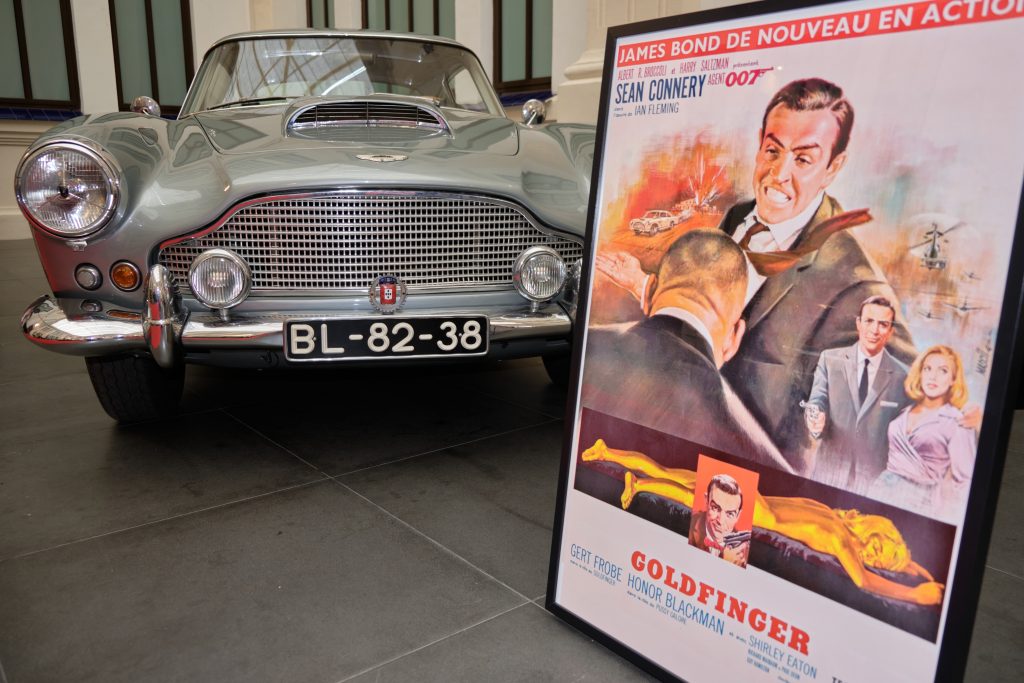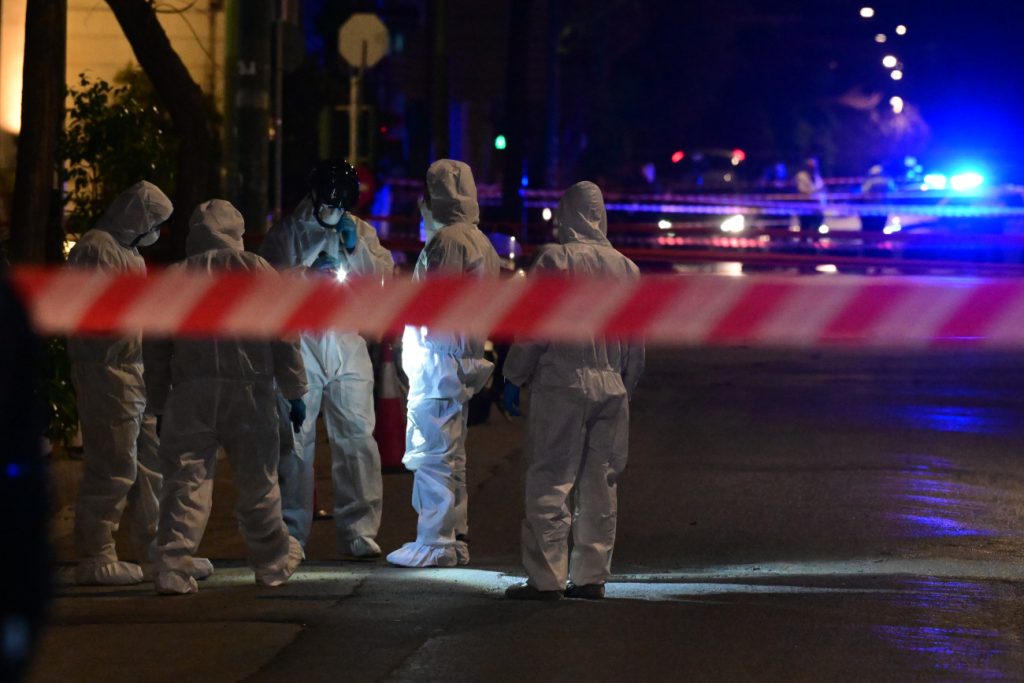James Bond has dodged more than 4,000 bullets. He has jumped from an airplane, skied off a cliff and escaped castration by laser beam.
Now, 007 is in a new kind of peril.
Nearly three years after Amazon acquired the right to release Bond movies through its $6.5 billion purchase of the Metro-Goldwyn-Mayer Studio, the relationship between the family that oversees the franchise and the e-commerce giant has all but collapsed. The decaying partnership has scuttled any near-term hope of a new Bond film—a black eye for Amazon’s ambitions in Hollywood, since at the time of the MGM sale, the Bond franchise represented a significant share of the $6.5 billion the company paid for the studio.
When it comes to Bond’s future, the power lies in the hands of Barbara Broccoli , who inherited the control from her father, Albert “Cubby” Broccoli, and who for 30 years has decided when a new Bond movie can go into production. She has told friends she doesn’t trust algorithm-centric Amazon with a character she helped to mythologize through big-screen storytelling and gut instinct. This fall, she characterized the status of a new movie in dire terms—no script, no story and no new Bond.
To friends, Broccoli has characterized her thoughts on Amazon this way: “These people are f— idiots.”
A representative for Eon, the production firm behind the Bond films, said Broccoli and other members of the family had no comment.

The two sides are at an impasse: Amazon needs Broccoli to furnish them with ideas for a new Bond movie, but Broccoli doesn’t want to make a new Bond movie with Amazon. The standoff, say people on both sides of the divide, boils down to a clash between the 20th-century Hollywood of big screens and big swings and a new entertainment industry ruled by Silicon Valley firms that prize data, algorithms and streaming subscriptions.
This story is based on interviews with more than 20 people familiar with the Broccoli-Amazon feud, including executives, business partners and friends.
The Broccoli family’s control of James Bond has few comparisons in contemporary Hollywood, where cherished characters are gobbled up by conglomerates eager to exploit them across screens, toy shelves and theme parks. For decades, studio executives have salivated over the chance to do the same with Bond.
Broccoli, 64, had already turned down TV shows, videogames and at least one tie-in casino before Amazon entered the picture. For much of her career, Broccoli has made those calls with her stepbrother, 82-year-old Michael Wilson. She has emerged more recently as the primary steward of Bond as Wilson nears retirement.
To Broccoli and Wilson, Bond is more than a character with $7.6 billion in box-office sales to his name. He is a lucrative family heirloom, to be handled with care.
On set, Broccoli’s colleagues say she exudes a den-mother authority over all the stunts, explosions and egos. She presides as the head of a British empire with rules of its own (nothing sensitive is put in email) and ensures that cardinal rules of storytelling are followed (Bond rarely shoots first).
It’s a job that has forced her to weather the hot-potato game of studio mergers and consolidations before. Due to the current impasse, the franchise hasn’t moved any closer to its next installment since “No Time to Die” came out in 2021, after a delayed premiere during the pandemic. That’s unusually long for a series that regularly saw releases every year or two starting with “Dr. No” in 1962 and rarely took more than three years off—and it’s a risky lull in today’s crowded entertainment landscape.
Broccoli has complained that Amazon isn’t a good home for Bond, since the company’s core business is selling everything from toilet paper to vacuums—a perspective Amazon executives find unfair. But since she makes the creative calls that come first—script, casting, story—Broccoli can hold Bond hostage from Amazon for as long as she sees fit.
In doing so, she quotes a refrain attributed to her father, a film agent who’d sold hair driers before he secured the rights to adapt Ian Fleming’s novels.
“Don’t have temporary people make permanent decisions.”
The name’s Bond
Few deals could have merged the old Hollywood with the new quite like the MGM-Amazon tie-up. It placed a studio best known for “Gone with the Wind” and “The Wizard of Oz” under the same roof as a cloud computing service and Ring doorbells.
Amazon paid $6.5 billion (excluding debt) for MGM, eyeing a library of titles to pipe into its streaming service or reimagine, from “Rocky” to “Legally Blonde.” One property in particular was to become the crown jewel in a growing entertainment empire: Bond.
The company’s tech-centric focus loomed over the franchise as soon as merger discussions began. Some executives at MGM were concerned that Bond and other titles would be given at-home launches in an era of ascendant streaming services like Amazon Prime Video.
Before agreeing to the deal, MGM made sure that Amazon was committed to releasing Bond on the big screen, a critical point for Broccoli, who waited out 18 months of Covid-19 lockdowns to play “No Time to Die” in theaters. Amazon has held firm to its commitment to release Bond in theaters, should a new movie come together.
Broccoli and Wilson had been looped in on the deal before it was announced. Broccoli had reservations, but didn’t want to complicate what many in Hollywood viewed as a massive payout for MGM’s owners—plus, she and her family would retain final say over all creative matters, including who plays Bond.
Mike Hopkins , who oversees Amazon’s Prime Video business, told associates ahead of the sale that he was optimistic the company could win over Broccoli’s trust and convince her to allow them to do more with the franchise.
Before the purchase closed, Amazon executives brainstormed among themselves how Bond could be plugged into their machine. Would Amazon produce a James Bond TV show for its Prime Video service? What about a Moneypenny spinoff? Or a TV spinoff centered on a female 007?
Broccoli’s response to such enthusiasm, one friend said, is often the same: Did you read the contract?
Hopkins assigned the delicate task of managing the relationship to one of his top entertainment executives, Jennifer Salke, a former NBCUniversal executive who has run Amazon Studios since 2018.
Broccoli was irked in one early meeting when Salke referred to James Bond by a dreaded word: “content.” Using such a sterile term, one friend reflected, was like a “death knell” to Broccoli.
It was also antithetical to Broccoli’s approach, which she has said mixes gut instinct with a healthy amount of risk—with no decision more critical than determining who will play Bond. Daniel Craig, for instance, was a relative unknown when he got the part, starting with 2006’s “Casino Royale.” The decision, she has said, is as serious as choosing one’s spouse.
Former Amazon executives have criticized the company’s approach to development, saying it is overly reliant on calculating risk—based on factors such as an actor’s past performance or what similar titles have done in the marketplace. The idea of casting an unknown in a lead role like Bond is hard to imagine at Amazon, they said.
Despite their dreams of Bond spinoffs and reimaginings, Amazon executives were more clear-eyed after the MGM deal closed that any such ideas would require Broccoli’s blessing.
At a meeting in May 2022, weeks after the deal closed, executives circulated a 10.5-page memo listing ideas for new shows and movies based on the titles in their newly acquired MGM library.
The goal was to “maximize content opportunities presented by MGM and the MGM library acquisition,” the memo said. Next to Bond, all the memo listed as a status was “TBD.”
“On hold pending larger discussions,” it read.
Tomorrow never dies
Since taking over the Bond business in the 1990s, Broccoli and Wilson have become accustomed to the soft touch and deference that defined the old-school studio system.
When they called, studio chiefs got on the line—in the case of MGM, that was Mike DeLuca and Pamela Abdy , two veteran executives widely known as some of the most filmmaker-friendly in the industry. Broccoli told friends she was upset when the duo left after the sale.
Wilson, her stepbrother, has complained to friends that he couldn’t land a meeting with anyone at Amazon above an “L6,” the internal designation for a senior role that is nonetheless six rungs below Chief Executive Andy Jassy , an L12. A person close to the company said Wilson has met with several senior leaders.
Amazon more recently enlisted the help of another production executive, Courtenay Valenti, who is now known as the “Barbara whisperer” within Amazon. In addition to having a background in film development, Valenti is herself a bridge between the old Hollywood and the new. Her father, Jack Valenti, was the head of the Motion Picture Association of America between 1966 and 2004.
He was also a contemporary of Barbara’s father, Cubby Broccoli, who built Bond into a global phenomenon and died in 1996.
For Barbara Broccoli, the Bond legacy has been described as “her father’s store.”
She was 2 years old when “Dr. No” opened in London two weeks before the Cuban missile crisis turned Bond’s on-screen exploits into a cinematic reflection of real-world events. In the U.S., Bond’s charm and swagger called to mind the new president, John F. Kennedy, whose endorsement of the Fleming novels had already sent their sales soaring. In the U.K., British fans saw in Bond an emblem of their country’s erstwhile empire dominance.
“We’ve extended Britain’s finest hour over sixty years because of him,” Broccoli said in a biography of Fleming published earlier this year by Nicholas Shakespeare.
A Bond economy grew, with Bond shaving cream, toothpaste and even lingerie for female fans who wanted to “Become Fit for James Bond.”
Broccoli began working on the films as a teenager, and she and her stepbrother presided over a blockbuster age starting with Pierce Brosnan’s debut in 1995’s “GoldenEye” and continuing through Craig’s five-film run. In 2012, “Skyfall” became the first—and is still only—Bond movie to collect more than $1 billion worldwide.
Broccoli and Wilson have begun showing the next generation the ropes. Wilson’s son, Gregg Wilson, helped to produce recent installments.
That passing of the torch has brought with it some disagreements over who the next James Bond should be. To associates, Gregg Wilson has appeared to be more sympathetic to calls for an update to Bond, a role that’s so far been filled by white male actors.
Some say a person of color in Bond’s tuxedo would better reflect the U.K.’s changing demography, and even nod to its ugly history of colonization. Take it a step further, others say, and cast a woman or a gay man.
Broccoli has told friends that she doesn’t have any qualms with casting a nonwhite or gay actor, but does believe Bond should always be played by a man, and should always be played by a Brit.
Villains have also presented a creative challenge, since Bond has already dispatched so many.
In a world where the 1% have more power than ever, some have suggested, a stateless billionaire autocrat might seem the obvious choice for a Bond bad guy.
Broccoli’s response to such suggestions: Been there, done that. Recent villains include a wealthy banker to terrorist groups who weeps blood out of one eye (“Casino Royale,” 2006); a wealthy oil heiress (“The World Is Not Enough,” 1999); and a wealthy tycoon whose global media empire includes a satellite network (“Tomorrow Never Dies,” 1997). That last one has come up more recently when she is offered inspiration from the real world.
“Elon Musk?” she said to one friend. “I did that back in 1997.’”
We have all the time in the world
In the nearly three years since the deal closed, Amazon has produced one Bond-related product: a reality show, “007: Road to a Million,” that features teams competing in spy-themed challenges. (Broccoli has worked with Amazon on non-Bond projects, including the drama “Till” and a forthcoming update to “Chitty Chitty Bang Bang.”)
The Bond reality show was in development before the MGM sale to Amazon, with Broccoli’s backing.
Broccoli had wanted a full marketing push, with billboards and TV commercials of the kind a Bond movie typically receives. At Amazon, the algorithm often does the work, surfacing shows to Prime users based on their viewing habits.
Amazon executives have griped that the show’s first season lost a significant share of viewers after six minutes. Its biggest surge of attention came when its host, “Succession” actor Brian Cox, admitted in an interview that he’d agree to do the show because he mistakenly thought he was signing on to star in a James Bond movie.
Still, work has begun on a second season. And with no clear direction of the Bond movie strategy, the show has become a venue for discussion within Amazon about the character’s place in the broader world, and whether the valorization of a dangerously violent, womanizing secret agent is what’s best for society today.
During a company meeting about the second season, an Amazon employee admitted her own misgivings.
“I have to be honest,” she said. “I don’t think James Bond is a hero.”
The room went silent.
Broccoli has taken her time before. There was a six-year stretch between 1989’s “Licence to Kill” and “GoldenEye” as the family figured out who should play Bond after Timothy Dalton and what his adventures would entail in the post-Cold War era.
“Many people and organizations have tried to put their own footprint on Bond,” Daniel Craig said in a speech honoring Broccoli and Wilson as they received honorary Academy Awards in November. “I admire your integrity in holding on to your singular vision as you brought Bond into the 21st century.”
In his acceptance speech, Wilson acknowledged the support of Amazon and MGM.
In her acceptance speech, Broccoli thanked the Academy for honoring producers and her father for enabling her to have “the greatest life imaginable.”
She did not mention Amazon.
Write to Erich Schwartzel at erich.schwartzel@wsj.com and Jessica Toonkel at jessica.toonkel@wsj.com



